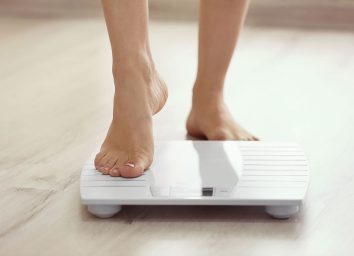The Habits That Drive the Most Weight Loss of All, Say Experts
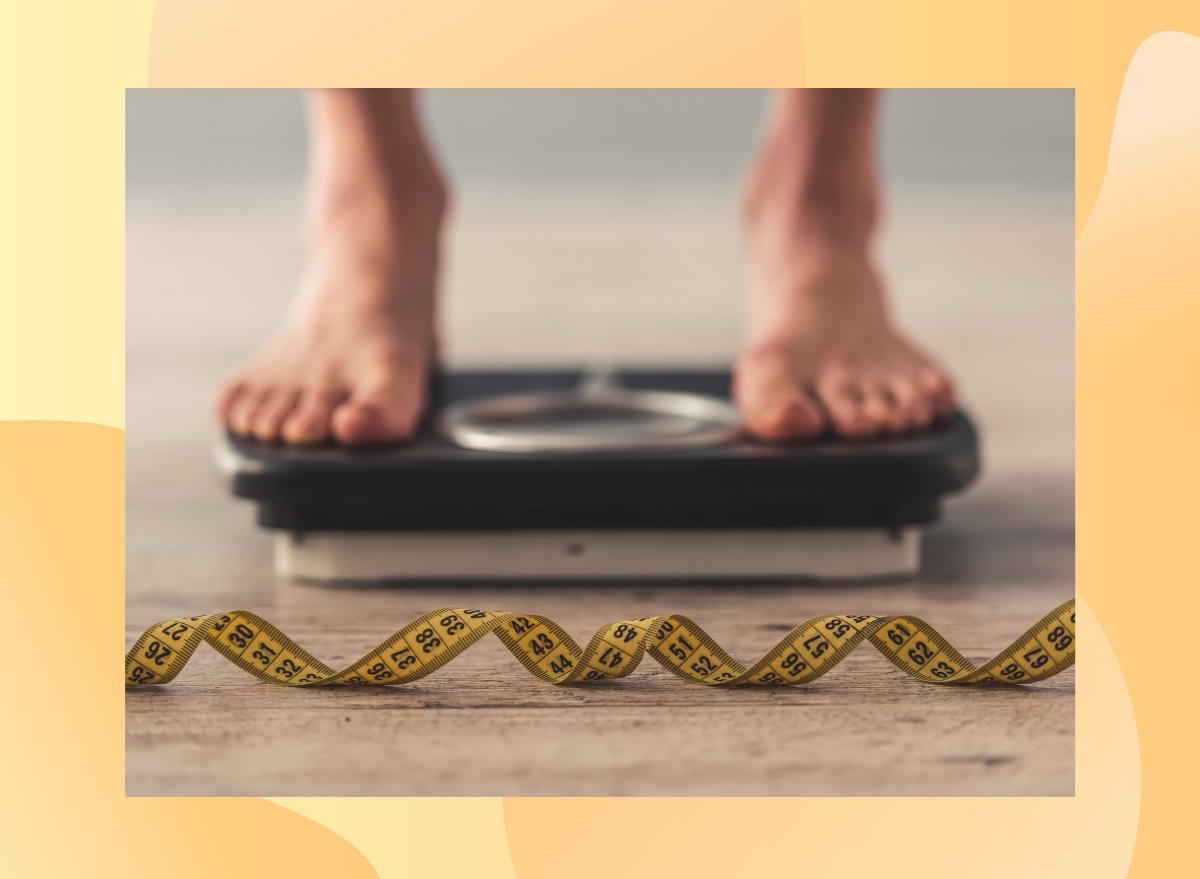
Let's face it: When it comes to losing weight, your habits are everything. And according to several top doctors, celebrity trainers, and experienced weight loss specialists we spoke to, there are at least nine habits you should be incorporating into your daily life if you want to see significant results. Curious what they are? Read on, because what follows are some of the all-time best habits you can do that are associated with successful weight loss. And for a handy list of tips and tricks that will help you along your weight loss journey, see these Lazy Ways to Lose Weight All December Long, Say Experts.
You're kinder to yourself.

"'I'm so lazy.' 'I just need more willpower.' Negative thoughts like these are an impediment to lasting weight loss," says physician Sylvia Gonsahn-Bollie, M.D.
She advises you to kick your negative self-talk to the side ("and anyone else's for that matter") and do everything in your power to be kinder and more understanding to yourself. "Say daily positive affirmations, like, 'I'm making progress. I can get to my happy, healthy weight.' Congratulate yourself for small wins both on and off the scale."
After all, Gonsahn-Bollie knows firsthand that it works. "Treating myself with self-compassion was the key to my six-year weight loss maintenance," she says. For some self-talk inspiration, see The Things You Should Always Tell Yourself When You're Trying to Lose Weight.
You eat high-protein breakfasts.
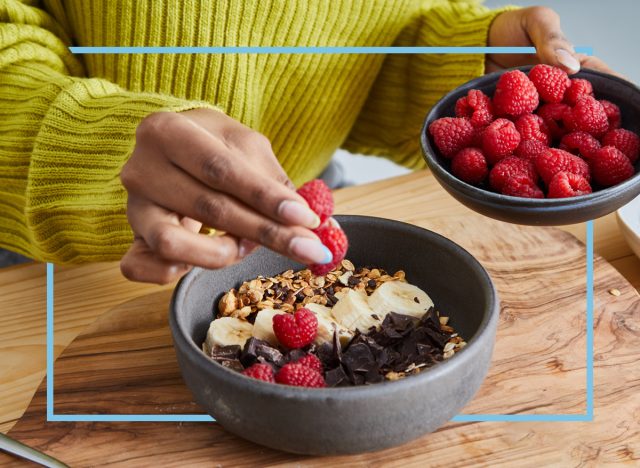
"Across all of my clients who are looking to lose weight, the most effective strategy has been incorporating a healthy, high-protein breakfast," says Oliver Bashforth, BSc Health and Exercise Science, of Blackridge Fitness in the UK. "As simple as this sounds, it's more effective that any kind of exercise regime or shake that fitness gurus are trying to promote."
He explains that, in the long run, consuming high-protein breakfasts help increase your muscle mass, which means you'll burn more calories over time. "They also help you feel more full, decreasing your likelihood of snacking later in the day," he says.
Remember: Starting the day with a healthy choice means you're more likely to make healthier choices as the day wears on. "When a healthy, high-protein breakfast is a habit, you've already conquered one-third of all of your meals," he says. "This habit also reduces the chance of an unhealthy spiral as you reset every morning with this healthy choice."
His favorite breakfast? "Half a can of black beans with 3 eggs and a handful of spinach. You can cook this in 5 minutes in a frying pan or a few minutes in the microwave. Season with salt, pepper, and a splash of Worcester sauce if you're feeling adventurous." For more, see these 19 High-Protein Breakfasts That Will Keep You Feeling Full.
You lift weights.

"To lose weight, you must raise your metabolism to burn more calories, and the best way to do that is to lift weights on a regular basis," says Robert Herbst, a personal trainer, weight loss expert, 19-time world champion powerlifter.
Now, any resistance training is good for beginners, whether that's simply doing pushups or squats at home. But if you're really trying to lose weight, you should work your way to the lifts that target your biggest and most important muscle groups that will help you burn more fat. These exercises include "compound movements such as squats, lunges, the bench press, and deadlifts," says Herbst. "These cause your metabolism to be elevated for 48 to 72 hours afterwards as your body rebuilds muscle that was broken down during the workout, and builds additional muscle in anticipation of greater loads in the future."
He notes that these big lifts "should be supported by a balanced diet of protein, good fats, carbs, proper hydration, and seven and a half hours of sleep a night. This should put one on the path to lose weight slowly, consistently, and healthily."
You prep your meals.
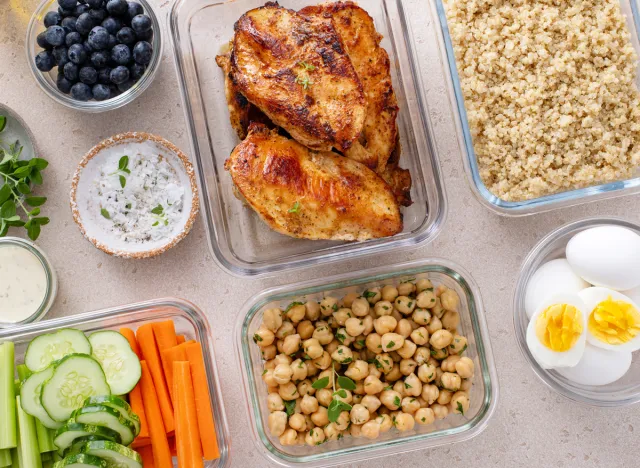
"You can never go wrong being over-prepared," the old saying goes. Well, it shouldn't come as a surprise that the lesson applies to weight loss. "One of the biggest weight loss derailers is being hungry and not having healthy options readily available," says exercise physiologist Brynn Franklin, MS. "So then you snack or grab a quick and unhealthy option."
Kathryn Ely, MA, JD, ALC, NCC, agrees. "From a behavioral standpoint, the single most effective habit to lose weight would be planning and preparing food ahead of time that fits your weight loss goals—and then being intentional in eating it," she says.
You "work off" your meals before you eat them.
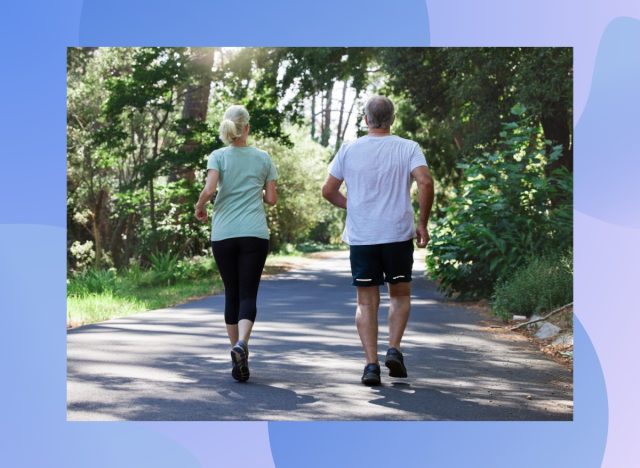
"A common misconception is needing to 'work off' your meals [after you eat them], but often people have a hard time doing that after a large meal," says celebrity trainer and nutrition expert Joey Thurman, CPT, FNS, BLS, author of 365 Health and Fitness Hacks That Could Save Your Life. "Even as little as a few minutes of movement before a meal can lower the insulin spike of your food, allow proper nutrient absorption, and prevent the food being stored as fat."
You eat consistently.

"Consistently filling up on satisfying, nutrient-dense meals and snacks is key to long-term weight loss," says Jaclyn London, Head of Nutrition and Wellness at WW. "When you want to lose weight, our tendency is to think about what we need to 'cut back,' 'limit,' or 'restrict.' When we're constantly hungry or calculating/counting/stressing over our next meal, we're losing time and energy we could use to practice making wholesome, energizing, nourishing choices that make us feel good and help us build confidence in our choices—which helps us to form healthier habits over time."
You eat foods in this order.

"You eat more vegetables than fruits, eat more fruits than starches," says Susan Bowerman, M.S., RD, CSSD, CSOWM, FAND, the Senior Director at Worldwide Nutrition Education and Training. "Aim to get most of your carbohydrates from veggies and salads. Keep your fruit intake to just one or two servings per day, and eat fewer starches. Vegetables have the fewest calories per bite, but they're filling and nutritious, so load up on salads and cooked vegetables. Have your fruit as a snack, dessert, or add it to smoothies."
You leave food on your plate.
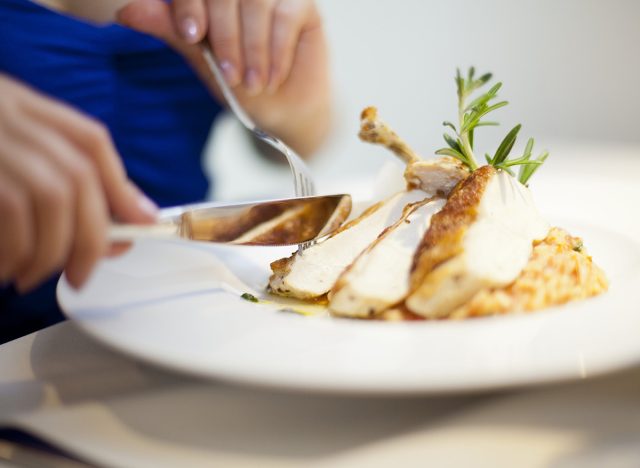
"The practice of leaving a few bites of food on your plate is designed to help you get in touch with your 'fullness' signals," says Bowerman. "Training yourself to stop eating when you're comfortably satisfied will help you learn how much food you actually need at a sitting."
Too often, she says, we rely on an empty plate to tell us we're finished eating, but by then we may have eaten a lot more than we should. "It's been estimated that a single bite of food averages about 25 calories. Let's suppose you leave 2 bites of food on your plate at two meals every day. That's a daily savings of 100 calories—and in a year's time, that could add up to a 10-pound weight loss."
You get good sleep.

Fact: If you're not getting a good night's rest, you're not going to lose weight. "You need 7-9 hours so you are not too tired to workout and to ensure that you don't crave sugary foods and drinks to 'get you through the day,'" says Niki Campbell, an ACE certified personal trainer, health coach, and owner of The Flourish Group. "Sleep deprivation slows your metabolism and creates cravings." For more great tips you need to know, see these Sneaky Weight Loss Tricks That Totally Work, Say Experts.

